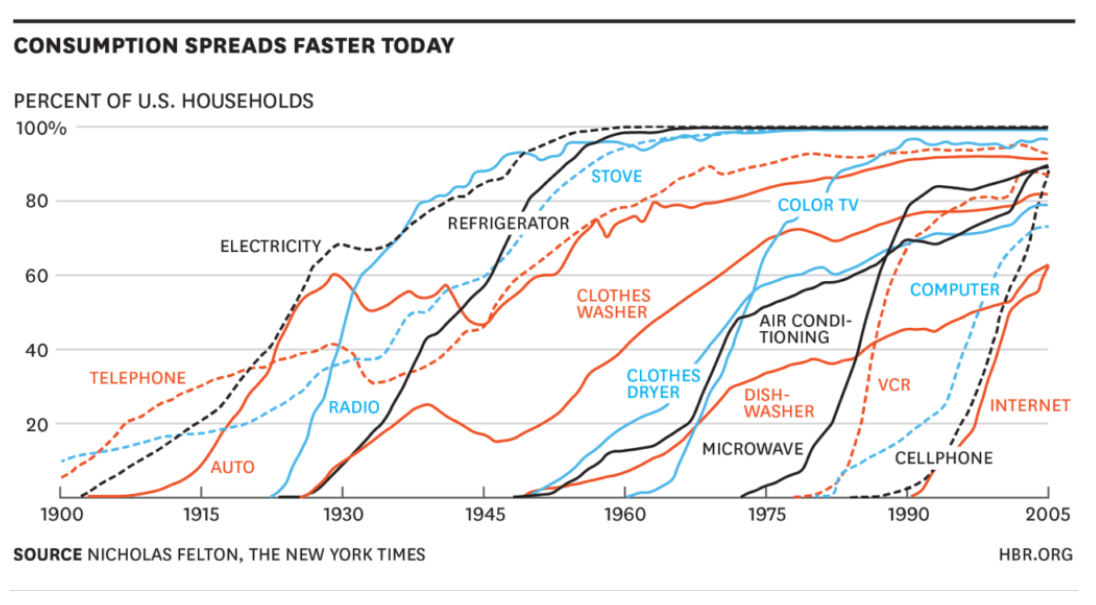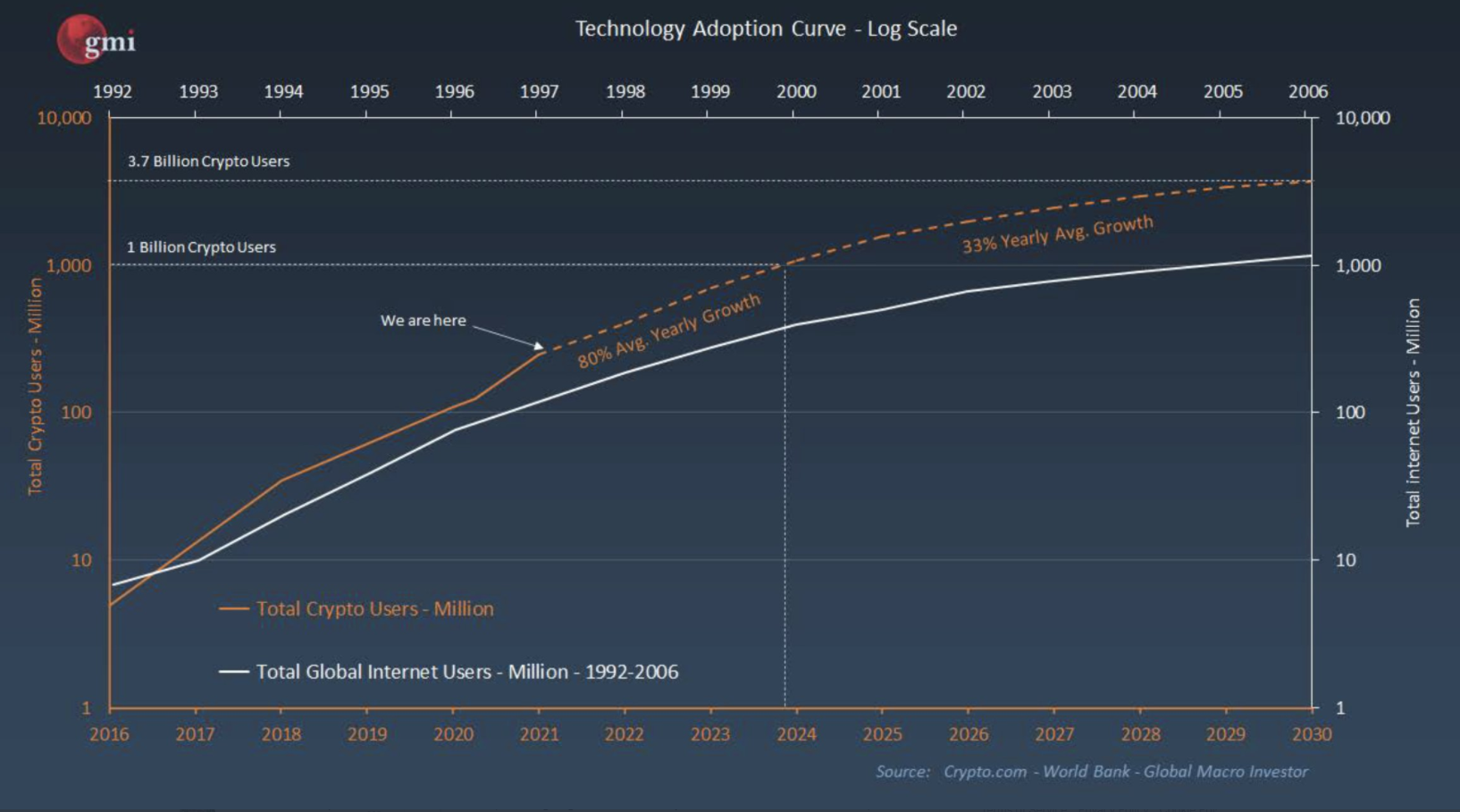
Frequently touted as the “greatest investor of all time,” Warren Buffet avoided technology investments for decades.
Instead, he preferred to invest in companies that he “understood,” with strong consumer demand and consistent cash flow.
Companies such as Coca-Cola, Heinz, and GEICO, definitely not sexy, just reliable and steady value investments. He had no interest in technology.
Sponsored
Then in the mid-2000s, several technology-based companies came on the scene – namely, Google, Facebook, Amazon, and Netflix. They provided curation, context, and content for the Internet, which caused rapid adoption of the interwebs faster than any preceding technological innovation, as seen in this graph posted at Harvard Business Review.
On the far right of the chart you can see that the Internet reached 60% market penetration quicker than any tech prior.

The mass adoption of the Internet was so fast that it helped spur personal computer maker, Apple, to launch its first iPhone in June 2007.
Sponsored
Buffett still avoided technology stocks – for almost a decade, and millions of value investors followed Buffett’s lead. That was despite the fact that tech savvy growth investors poured hundreds of millions into the handful of red hot tech stocks, which became affectionately known as FAANG stocks – an acronym comprising the first letter of each company: Facebook, Amazon, Apple, Netflix, and Google.
We know Buffett and his company Berkshire Hathaway didn’t start investing in Apple until 2016, because he publicly disclosed that fact during the annual Berkshire shareholder meeting in 2018.
"The four largest companies today by market value do not need any net tangible assets. They are not like AT&T, GM, or Exxon Mobil, requiring lots of capital to produce earnings. We have become an asset-light economy."
Buffett continued to name those four largest companies as Facebook, Amazon, Apple, and Google. He admitted that Berkshire had erred by not investing in those companies sooner. He did confirm at that meeting that Berkshire started buying Apple in 2016 and that it held more than $50 billion of Apple, making it the largest holding for Buttet’s company by 2x at the time.
But the “Buffett bias” against technology-based companies has continued. Its negative narrative has shifted to a criticism that tech stocks are overpriced, they have “bubble” level multiples, and unsustainable earnings growth.
However, a recent Bloomberg article refutes all of those claims against these high-flying tech stocks. In fact, the underlying premise of the article is that the FAANG asset class has always been, and continues to be, a raging bargain. That’s because those tech-focused companies continue to invest and innovate, driving constant double-digit earnings growth quarter after quarter – with no end in sight.
Interestingly, a strong correlation exists between tech stocks and cryptocurrencies. Earlier this year Buffet called cryptos worthless and “rat poison squared.” Other critics have repeatedly called Bitcoin and digital money “bubble assets” that are overvalued and built on nothing.
Those were the same criticisms levelled against the formerly intangible, tech-based FAANG companies.
But the comparisons don’t stop there. The FAANG companies created a virtuous cycle that drove mass adoption of the Internet – as we saw in the preceding graphic.
The chart below, shared by crypto influencer Raoul Pal on Twitter, shows that cryptocurrency adoption is growing even FASTER than the Internet. Pal states that the annual adoption rate for the Internet averaged 63%, while the uptake rate for cryptocurrencies is nearly twice that at 113%.

Given that FAANG stocks and cryptocurrencies have had the same critics (i.e. Warren Buffet), faced the same negative narratives, and experienced similar growth trajectories – will the crypto asset class likewise be heralded one day as a “…screaming bargain?” Time will tell.
On The Flipside
- While there appears to be several similarities between cryptocurrencies and FAANG stocks, they are both very different asset classes.
- The FAANG companies are publicly traded enterprises that produce goods and services, with mandated financial reporting requirements by the SEC.
- Cryptocurrencies are basically open-source software platforms governed by foundations, consortiums, or loose-knit developer communities. A case could be made that comparing FAANG with cryptos is an apples-to-oranges comparison.
Why You Should Care?
We all want widespread adoption of cryptocurrencies. However, many also want crypto to be widely accepted and validated – which is different from simple usage. Regardless, both of those facets of uptake for crypto will take years to occur. Until adoption and acceptance occur, continue to believe the underlying fundamentals and not the FUD.

